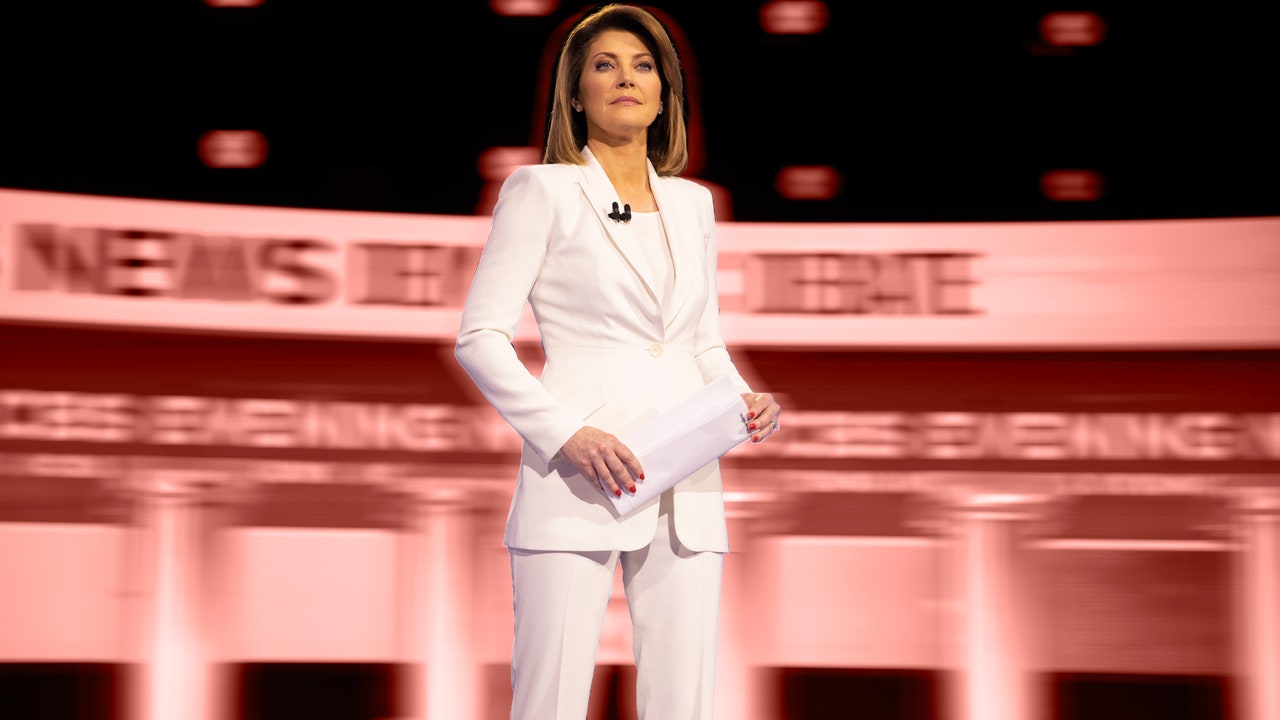Norah O’Donnell Is Used to Reporting on the News, But Now It’s Getting Personal

But for all the emphasis on data and information, it’s obvious that O’Donnell still draws on her experience as a former co-anchor of CBS This Morning; she knows the value of human interest. Most of her nighttime broadcasts end with stories of uplift from local communities, emphasizing the common purpose that millions of Americans feel even in our partisan era. And in the reporting that goes into each episode, she’s pushing her team to hammer home the real-world impact of the virus—for low-wage earners, for the uninsured, for the restaurant, hotel, and service industries.
As the crisis began to take root in the United States, O’Donnell stressed to her team the need to cover the economic fallout. That remains paramount, but weeks into the pandemic, she’s also seen up close the personal toll it takes. In late March, CBS News producer and talent executive Maria Mercader died of Covid-19. Earlier this week, ABC announced that a longtime cameraman on Good Morning America has also died from complications related to the virus. O’Donnell has covered half a dozen presidential races and countless natural disasters, but this is one of the few stories she’s ever reported that spares no one, from her audience to her staff, co-workers, friends, and relatives. As the months go on, more and more people will know someone who’s succumbed to the virus. With record numbers of Americans out of work, the strain is mounting.
“I know that [that’s true] because I have had some personal challenges,” O’Donnell explains, noting that her husband—the chef Geoff Tracy—has had to close his restaurants, with hundreds of workers laid off and a business decades in the making on ice. O’Donnell herself is now tasked with helping her children “distance learn,” in addition to her more than full-time responsibilities at work.
“With each person I see, I’ve tried to take that extra moment to ask them how they’re doing and to understand that when people show up on a conference call or show up at work, there’s a silent struggle that people are having. It’s hard. People who have substance abuse problems—and we talked about this on the air—that’s going to be exacerbated by what’s going on right now. I’m on a text chain with all my girlfriends from Texas and girlfriends from college, who live all across America. I get those messages, too. ‘I’m getting furloughed.’ ‘They just cut my pay 50%.’ ‘You may not have known this, but I’m very, very depressed.’ ‘I’m having trouble in my marriage.’ I’m really acutely aware that there’s a lot of private suffering that’s going on and unlike I’ve ever witnessed before.”
As much as she’s covering the pandemic, part of her work is attempting to process it, as much for the audience as for herself.
When it was announced in 2019 that Norah O’Donnell would become the lead anchor of CBS Evening News, a friend told her to keep a journal. She would soon step into one of the most respected seats in broadcast journalism. She would soon deliver the news to millions of people nationwide. She would want to be able to look back on this time, he told her. She was, as he put it, about to have one of the most consequential periods of her life to date.
O’Donnell took the advice, hoping it would indeed be a monumental chapter for her. What she did not know and could have known is that six months into her tenure, the entire world would enter into a “monumental chapter,” the most consequential period in most of our lives so far. And so O’Donnell is now, in a sense, taking contemporaneous notes for all of us.
She would never have guessed it, but the journaling helps. She jots down anecdotes that she hears in the (remote) newsroom. She tries to write down what happened in a given interval; “in terms of the news, and the experiences, and the people I talk to.” Sometimes, she writes down how she’s feeling—the stress and the adrenaline and the rush of a great interview.
Then at 6:30 p.m. each night, she beams into households nationwide and delivers not just the latest headlines, but something akin to her private journaling exercise on a public scale. She presents the facts—in perspective.
“Not to be too…whatever,” she adds towards the end of this interview. “But I was a philosophy major [in college], and Aristotle talked about the importance of reflection.” O’Donnell is, in addition to her job as its lead anchor, also the managing editor of her show, so she still writes scripts. But that writing is about word choice and timing and communicating a lot of information in a short period of time. The journaling is different. “That’s how I’m able to be contemplative about this, because it’s really, really hard.”
Mattie Kahn is the culture director at Glamour.
